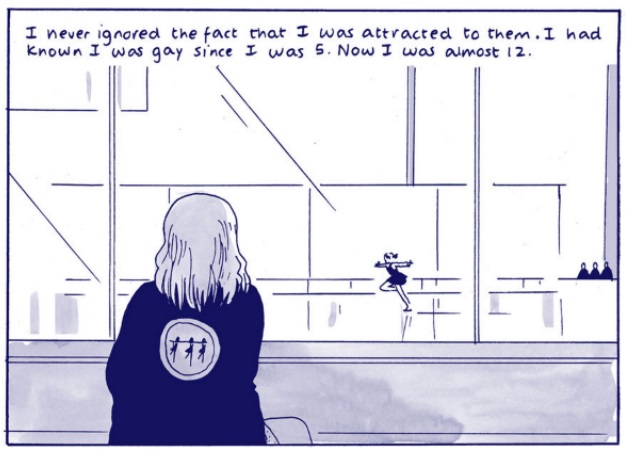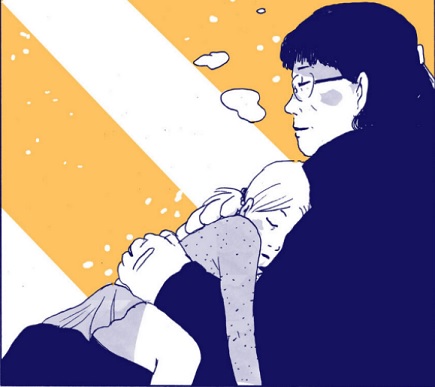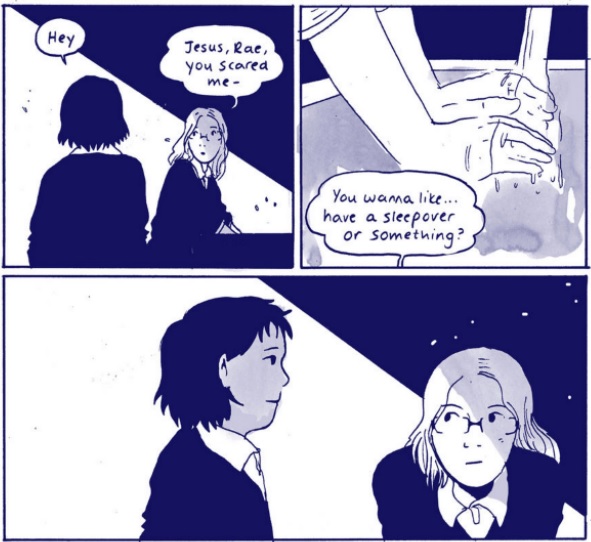
Spinning is Tillie Walden’s autobiographical story of growing up as a gay teenage ice skater in Texas. It’s told with remarkably little drama or fuzz, just a few years out of the life of a girl who has already known she’s gay for years before the story starts. Most of the conflict in the story is about Tillie’s growing disinterest in skating, even as she becomes more proficient in it. There’s no great rebellion, just Tillie continuing to skate because that’s what she’s used to doing, until finally one day she stops. And inbetween her skating we get glimpses of how she finds out she’s gay, her crushes, first love and coming out. It’s a very ordinary story, but that ordinariness is its strength.

The art and colour scheme relentlessly reinforce that ordinariness. Everything is muted, mostly black and white, but with the occassional harsh yellow highlight. This palette fits the early morning grayness of Walden’s skate practise well. The occassional use of a slightly warmer colour, like above, helps to distinguish more important moments from the day to day drabness.

Walden’s art is understated here, she doesn’t use grand gestures because the story wouldn’t fit them. Instead, she relies on small, subtle gestures and meaningful looks. I like her faces especially, a nice mix of realism with just enough cartoonist exagerration. Her skating scenes fittingly verge on the mundane, as they’re mostly training scenes, but even the occasional competition skating is shown from the perspective of the skaters, for whom it’s all familiar rather than exciting.
Perhaps the most bizarre, shocking thing about this autobiography for an old fart like me is that Walden shows her younger self and her friends reading and talking about the Twilight novels, the first of which came out only in 2005. it shows how young Walden is; she most be in her mid-twenties at most. It’s rare to start an autobiography this young; usually you have more distance between the narrator and their younger self. Perhaps this is why there’s so little drama, so little attempt to fit her memories into a “proper story”. All of which I like in this undramatic story of coming out and stopping being an ice skater.
No Comments